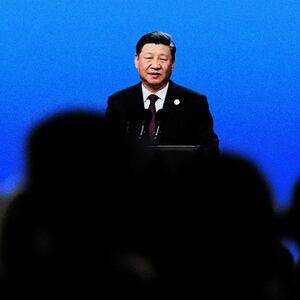Political innovators are a free society’s tragedy. Their good intentions lead them to seek to “fix” problems in the electoral and the economic systems, under the guise of good government and harm-prevention. But in advocating for “change,” they’re creating new dangers. In pursuit of fixing relatively small problems, they too often both enlarge the existing problems and add new ones—then come back with more reforms to fix the problems they have created, rather than undoing the previous ones.
Take our polarized electoral politics. An innovative solution gaining popularity is ranked-choice elections. This system puts several candidates of all parties on the same ballot and, at best, disincentivizes candidates from nasty attacks and leads to centrism and moderation. New York City and Alaska implemented this model, and the results were the triumphs of Eric Adams (running on a centrist platform) and the re-election of temperamentally moderate Sen. Lisa Murkowski. An added benefit was the defeat of Sarah Palin to centrist Democrat Mary Peltola.
But there could be a troubling outcome as well: The two parties (which already lack any substance beyond their brands) could become entirely meaningless.
Considering the current states of our two parties, this might sound like a desirable result, but it will be the first time that a modern democracy would operate without parties, and whether a democracy can survive this proposition remains to be seen. It’s always possible that the parties will find new clever ways to live on. This too is worrying, as one must never welcome cleverness from political parties whose only “virtue” is cynicism in pursuit of victory.

New York City mayoral candidate Eric Adams speaks during his election night party at Schimanski on June 22, 2021 in Williamsburg, Brooklyn.
Andrew Lichtenstein/Corbis via Getty ImagesIt is troubling that the innovators looking to solve our problems—electoral, economic, and societal—seldom pause to investigate their roots. Intellectual laziness is a probable cause. Another explanation is that they will come to realize that the mess is in large part their own fault, and that the answer might lie not in more innovation, but undoing previous reforms.
What makes American democracy unique in a bad way is that its two parties have no power over their candidates and nominees and are reduced almost entirely to brand names.
Imagine this scenario: A self-proclaimed fascist declares candidacy as a Republican, and a Stalinist as a Democrat. The parties will have little but prayers to stop them, as it’s all up to the party’s voters to determine who gets to be the nominee.
The two parties also have no immunity from external interference, and one can look at the large number of former Democrats who voted for Donald Trump in the 2016 primaries—or Rush Limbaugh’s botched 2008 Operation Chaos to prolong the Democratic primary race—to see this vulnerability. Democrats successfully exploited this problem by disgracefully promoting pro-insurrection Republicans during the 2022 midterm elections, most of whom won the Republican nomination and lost in the general election.
Blame the political innovators and good government reformers.
Primaries are only decades old, a relatively new system to enable partisan voters over the party elders and political machines as the dominant voices in deciding who gets to be their parties’ nominees. Later, other reformers tried to get rid of money in politics.
The former policy ignored James Madison’s warnings against the passions of the masses, so now the most passionate—and often unreasonable—decide who gets to be on the ballot in November. The latter failed to get rid of money in politics, but it got rid of a lot of the money in parties, hence elevating outside advocacy groups, Super PACs, and grifters over the parties in controlling candidates.
Further, shrewd backroom dealmaking is a necessary skill for those interested in governing, and it used to be a necessary skill to get elected, too. This consistency meant that successful campaigning was a test for how well one could govern, but the new electoral system has removed this test, which explains why so many members of Congress are so bad at legislating.
Another explanation is congressional transparency reforms. They were meant to allow constituents to hold their representatives accountable for their conducts. What few foresaw was that only the politically obsessed pay sufficient attention to hold their representatives accountable, and the fear of the wrath of activists and primary voters has meant that members of Congress opt to do nothing so they can get re-elected.
Today, little happens in Congress, and whatever legislation that’s to actually be passed is decided at the last minute at the offices of congressional leaders—leaving the other 500 members with practically no use.
These particular reforms that were meant to better represent democracy are, in fact, destroying it.
Not all reform is bad, though. The Constitution was an extraordinary product of reform to establish “a more perfect Union.” It didn’t create an absolutely perfect Union, because the flaw in human design means that there is no perfect political system. And so long that these imperfections exist, reform will remain popular.
Nowhere in its history has the United States lacked its share of imperfections. Today, many perceive polarization to be the most urgent one—rightly so in all likelihood. Political parties frequently end up with nominees who are the most extreme in their words and absolutist in their demands. The information structure adds to this challenge. The incentives of candidates largely correspond to the often-extreme demands of party activists, leading them to run against two parties: the opposition and their own.
So there is no question that change is needed, or we are all doomed. But it is troubling that the reformist class trying to clean its own mess is still advocating for “forward-thinking solutions.” Let’s examine backwards-looking solutions for once!
There is another “reform” movement trending in different states, and it has a lot to teach us. Over decades, occupational licensing laws have piled up across the country, spurred by advocates who meant well, trying to ensure customers were being served by well-trained technicians of various professions. But as a result, in many states it costs thousands of dollars to become a barber, florist, or a real estate agent. A few customers are better off for it, but many unemployed workers are not, and all customers are paying much higher prices for services.
There is a concerted movement to reform occupational licensing overreach, getting rid of some of these unnecessary obstacles to the job market and allowing poor and lower-middle-class Americans to find work much easier. But the irony is that this “reform” movement is the opposite of what it is called: It is an un-reform movement, going back in time to correct a previous “reform” that did more harm than good.
Some reforms do net good—again, the U.S. Constitution comes to mind, as well as the Bill of Rights, Reconstruction amendments, women’s suffrage, and the Civil Rights Act. Even the great conservative Edmund Burke conceded the occasional need for change. But the law of unintended consequences dictates that most fail to fix the problems they address and, instead, result in exacerbating them and adding new ones.
An English jurist once mocked, “Reform! Reform! Aren’t things bad enough already?” Innovators should keep in mind that most innovations fail and become forgotten. What makes political innovations so dangerous is that they usually stay—even if they fail.
For reformism to succeed, it must always consider un-reform first as a solution; rather than considering that new problems are the results of new technologies and cultural trends, reformers must ask whether policy changes are to blame. So take this as a plea to our innovator that they will do us more good by considering turning the clock back often, instead of coming up with great new ideas.








